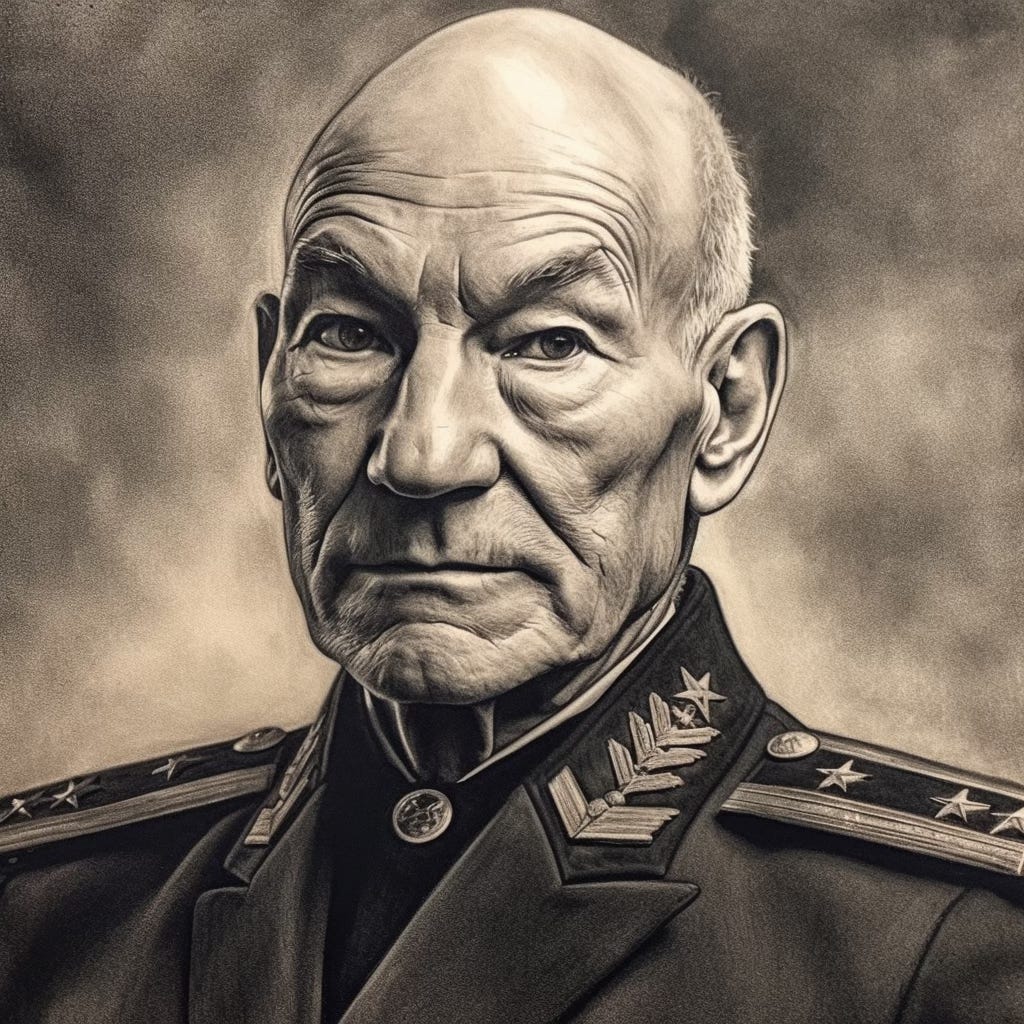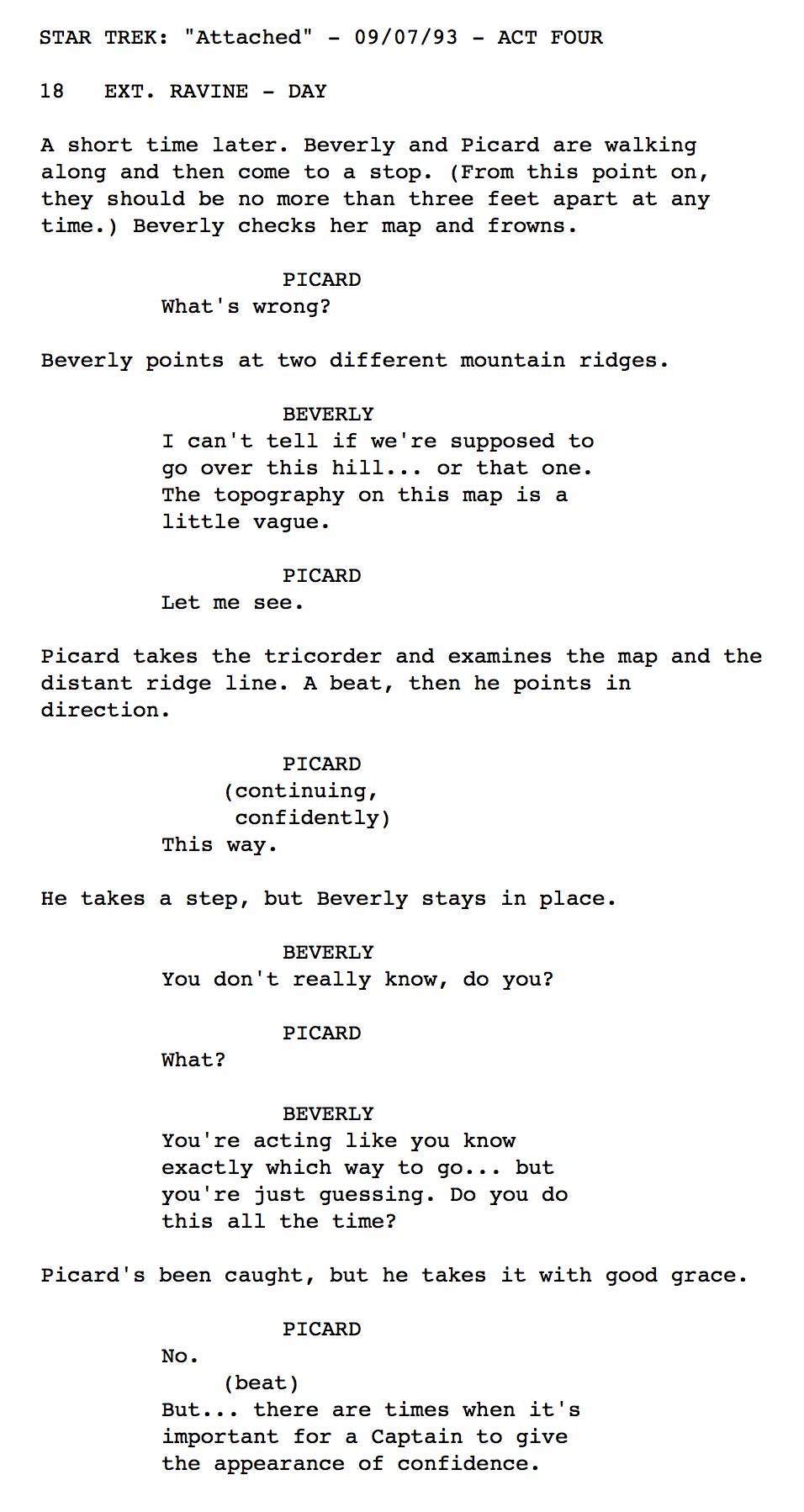Navigating Uncertainty: The Leadership Paradox of Choice and Confidence
How Embracing the Unknown and Exuding Confidence Can Transform Challenges into Opportunities
My father started a business in 1969. It was in the plastics industry and, yes, the “The Graduate (1967)” was right:
Mr. McGuire: I want to say one word to you. Just one word.
Benjamin: Yes, sir.
Mr. McGuire: Are you listening?
Benjamin: Yes, I am.
Mr. McGuire: Plastics.
Benjamin: Exactly how do you mean?
Mr. McGuire: There’s a great future in plastics. Think about it. Will you think about it?
Mr. McGuire was right. Shortly after its inception, our family business flourished, marking a promising trajectory. Yet, as an only child, my passions diverged from the burgeoning empire. In 1986, I proudly earned a degree in Electrical Engineering. My post-college years saw me delving into the world of coding, a self-taught endeavor. My foray into the shareware software realm was met with notable success, a testament to the era's digital renaissance. But a deep-seated yearning beckoned me back to the family's legacy. While plastics didn't captivate me, the allure of creation did. My father may have laid the foundation, but an intrinsic drive compelled me to envision a future that transcended his initial vision.
Crossroads of Legacy: Stepping into a Family Business on the Brink and Navigating Loss
My journey was holistic. I immersed myself in various departments, even experiencing the tactile rhythm of the factory floor. Not as an overseer, but as a hands-on operator. This immersion didn't crown me an industry expert, but it fostered a profound appreciation for the intricacies of the trade and the nuances of profit and loss. As my father edged towards retirement, he entrusted others to guide my education in the business. Direct mentorship from him was scarce, but his legacy was a silent teacher.
Fate has a curious sense of timing. The business, which had thrived from its inception, began showing signs of strain just a few years before my return. By the time I stepped in, challenges intensified annually. The initial tremors of instability culminated in a significant financial setback in 1991. Tragically, a mere two years later, I lost my father to a rapid and unforeseen battle with cancer.
In the somber days following my father's passing, I assumed the mantle of Chairman, CEO, while the then-President transitioned to the role of President, COO. These three letter suffixes were the only new introductions outside myself replacing my father. With his absence casting a shadow of uncertainty, our bank, understandably anxious about the business's trajectory, presented me with a stark choice. They handed me documents to transfer my father's $800,000 personal guarantee to my name. As a family whose heart and soul were intertwined with the business we had no other significant assets. Thus, the formality of a personal guarantee seemed almost absurd. Yet, the alternative was even grimmer. No other bank would shoulder our enterprise, and without this guarantee, our loan stood on the precipice of being revoked. The dilemma was clear: sign and risk everything, or abstain and relinquish all my father had built.
There I was, at a crossroads, with the weight of our legacy bearing down on me. I was acutely aware of my limitations—I lacked the operational expertise to steer the business operations, a realization that influenced my decision to adopt the CEO title. More crucially, I recognized that I had neither the inclination nor the aptitude to master the intricate nuances of daily operations. This wasn't a matter of lethargy; it was a deep-seated understanding of my strengths and weaknesses. Consequently, I knew I had to lean on someone with the requisite skills. I firmly believed that in collaboration with the current president, we could navigate the storm and rejuvenate the business.
In the aftermath of my father's passing, the president summoned me to his office. He embarked on a retrospective journey, detailing his ascent within the company—from his early days, through the company's meteoric rise, to his current role overseeing all operations. He painted a vivid picture of the collective sweat and toil that had propelled the business to its zenith. While he acknowledged the financial storm clouds gathering on the horizon, he remained steadfast in his belief that sheer hard work would be our salvation, guiding us back to profitability. His narrative evoked an image of a driver cruising effortlessly on a straight highway for 17 years, only to be confronted by a jarring "bridge closed" sign. But as I peered ahead, it wasn't merely a closed bridge; it was a gaping chasm. And here was the driver, advocating that accelerating would magically bridge the void. It became evident that the linear thinking that had served us in the past was ill-suited for the challenges that lay ahead.
Then, amidst this backdrop, he posed a question that crystallized the gravity of our situation. He inquired, "Why are you the CEO, and I am the COO?" Here we were, teetering on the brink of bankruptcy, and he was preoccupied with titles? That moment was revelatory. It wasn't about ego or titles; it was about survival. I realized that if we were to navigate around the missing bridge, we needed a new helmsman. I'm certain he never grasped the significance of that pivotal exchange. My focus was singular—finding a way forward, irrespective of who provided the solution. But it became abundantly clear that the path to salvation wouldn't be charted by him. Thus, our professional paths diverged.
The mere suggestion of me taking over operations in the interim sent shockwaves throughout the company. As I had previously expressed, I had no aspirations to fill his shoes. The atmosphere grew tense, with palpable anxiety about our future without a seasoned operational leader. Previously, there was a 'leader' who, in his meticulousness, even oversaw the approval of magazine subscriptions for his direct reports. Now people had to start thinking for themselves. While the path ahead remained uncertain, one thing was crystal clear: we were no longer barreling heedlessly towards a looming disaster. The risk of failure was still very real, but at least we were poised to chart a new course.
The Final Frontier: Leading with Confidence in an Ambiguous World
Fast-forward to today, and those initial, tentative steps towards reinvention seem like a distant memory. For those curious about the aftermath — our journey, against the odds, culminated in success.
Back then, a singular philosophy guided me: I was more daunted by a predictable adverse outcome than by the unpredictability of the unknown. Just as an entrepreneur perceives the unknown as a realm brimming with potential, seasoned business owners and investors must embrace it as a lifeline, a means to adapt and thrive in an ever-evolving world.
I've come to realize that the quest for the "right" path is often a futile one. More often than not, life presents us with choices rather than definitive answers. And if you abstain from making a choice, the world will make it for you—contrary to the wisdom of Rush lyrics. When it's time to pivot or leave something behind, do so with unwavering resolve. Don't look back; instead, focus on continuous learning, agile course correction, and relentless drive on your chosen path.
If you choose not to decide. You still have made a choice. — Neil Peart, Rush
This concept is beautifully illustrated in the 160th episode of "Star Trek: The Next Generation," titled "Attached." In this episode, Captain Jean-Luc Picard and Beverly Crusher find themselves at a crossroads—literally. Faced with two mountain ridges and an ambiguous map, Beverly is uncertain which way to go. Picard, after a moment's consideration, confidently points in a direction and says, "This way."
Beverly, however, isn't easily convinced. She challenges him: "You don't really know, do you?" Caught off guard, Picard admits that he doesn't. But he adds, "There are times when it's important for a Captain to give the appearance of confidence."
This exchange encapsulates a profound leadership lesson. Sometimes, leadership isn't about having all the answers; it's about exuding confidence even when the path ahead is unclear. It's about making a choice and committing to it, knowing that time will reveal its wisdom or folly. In a world that rarely offers clear-cut solutions, the ability to navigate uncertainty with assuredness is not just a skill—it's a necessity. Even when the choices before you are ambitious and fraught with challenges, moving forward with confidence becomes imperative, especially when the alternative is a certain descent into failure.







